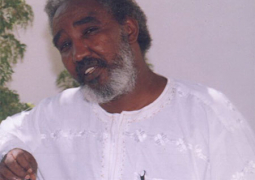Time for Long Overdue Change – Time for an African
The departure of Mr. Dominique Strauss-Kahn as Managing Director of the International Monetary Fund (IMF) presents a prime opportunity for the IMF and the developed countries to deliver on their commitment to implement major reforms at the IMF, including those relating to governance.
In particular, there is now need to end the 'informal agreement' that the head of the IMF should be a European.
In this regard, an opportunity has arisen to decisively take hold of the IMF governance reform agenda by selecting the next IMF Managing Director through an open, transparent and merit-based selection process in accordance with recent discussions within the G20 in the wake of the recent global economic and financial crisis.
The African Union believes that it is now time for a non-European, particularly an African, to be at the helm of the IMF, given that the position of IMF Managing Director has never been held by a non-European because of the tacit agreement that currently exists for a European to head the institution.
Selecting a non-European and particularly someone from the developing world would go a long way in increasing voice and representation at the IMF for these countries.
In addition, selecting a non-European would also better reflect the dynamic changes occurring in the global economy, with a gradual shift in global production and demand away from the industrialized economies to developing regions such as Africa, Asia and Latin America.
The IMF’s World Economic Outlook for January 2011, for example, predicts that the world economy will expand at about 4.5 percent in 2012, with advanced economies growing at only about 2.5 percent and emerging economies advancing at 6.5 percent.
Notably, a number of countries that are expected to continue growing strongly are in Africa. Further, the World Bank's Global Development Horizons 2011 Report also projects that the world's emerging economies will grow on average by 4.7 percent annually between 2011 and 2025, a rate that is twice the 2.3 percent projected for advanced economies over the same period.
The case for an African IMF Managing Director also arises from the fact that Africa is emerging as a new pole for global growth with huge potential ranging from increased gross domestic product (GDP) growth performance, macro-economic stability, a population size of 1 billion, consumer spending of more than USD 860 billion, and abundance of natural resources, amongst other things.
Arguably, the developing countries, including those in Africa, have several highly qualified and credible candidates for the position of IMF Managing Director, whose appointment would also give credibility and legitimacy to the IMF.
Reforming the selection procedure for the Managing Director of the IMF is also crucial given that developing countries are increasingly becoming major contributors to the institution, representing about 42 percent of the contributions to the Fund, compared with the less than 30 percent contributed by Europe and the United States.
Further, appointing an IMF Managing Director from a developing country, and in this case from Africa, would bring with it new perspectives and new ways of handling the macroeconomic and fiscal problems of IMF member countries that take into consideration the interests of all countries, and thereby help to foster improved global sustainable and balanced growth and macro-economic stability.
In conclusion, the African Union urges that candidates from developing countries, and particularly from Africa, be given fair and equal opportunity for selection for the position of IMF Managing Director.
Europe can no longer maintain an absolute right to the position of IMF Managing Director. Should the tradition be done away with, one possible compromise in the package of change would be for the No. 2 position to be given to a European.
The time is now to deliver on the IMF governance reform agenda relating to ensuring an open, transparent and merit-based selection of its Head.



